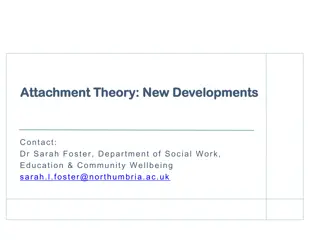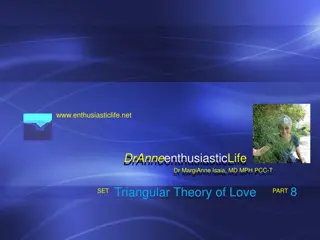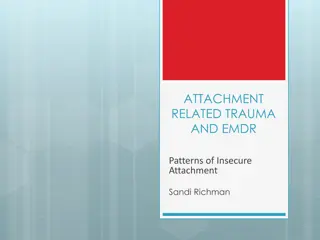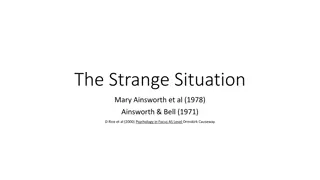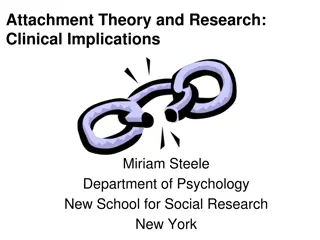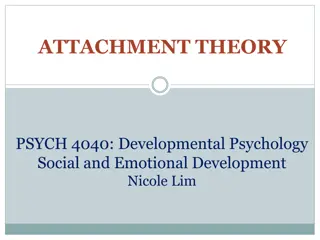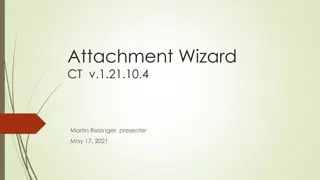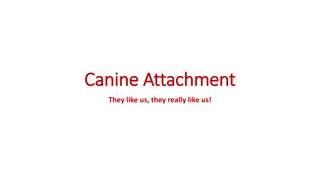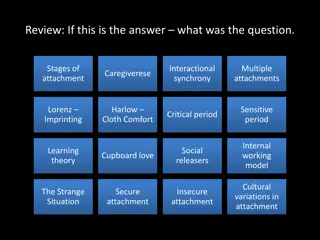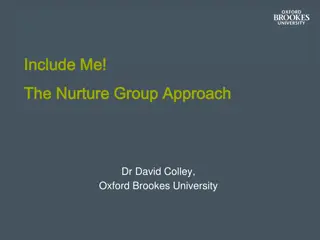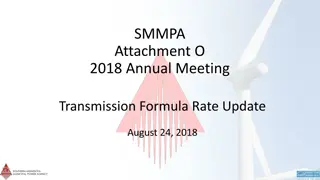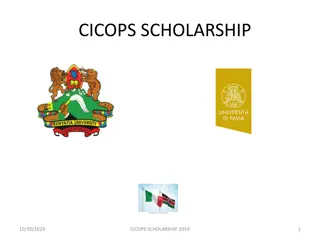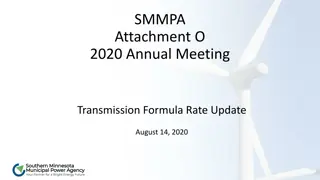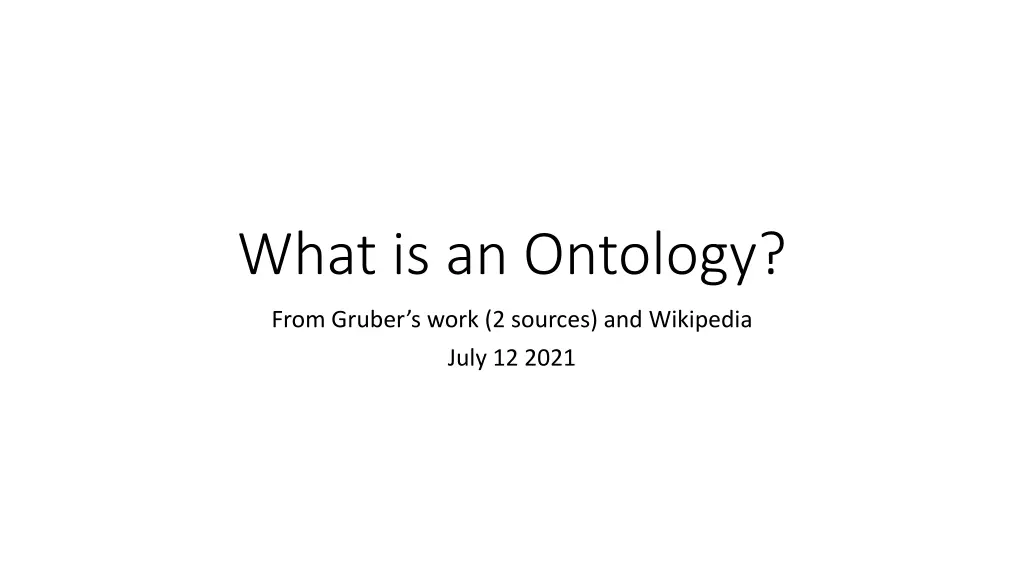
Understanding Ontology in Knowledge Representation
Explore the concept of ontology as a specification of conceptualization, describing the key elements, relationships, and purpose for knowledge sharing among agents. Ontology bridges philosophy to AI, defining existent entities and relationships within a domain to enable effective communication and knowledge transfer.
Download Presentation

Please find below an Image/Link to download the presentation.
The content on the website is provided AS IS for your information and personal use only. It may not be sold, licensed, or shared on other websites without obtaining consent from the author. If you encounter any issues during the download, it is possible that the publisher has removed the file from their server.
You are allowed to download the files provided on this website for personal or commercial use, subject to the condition that they are used lawfully. All files are the property of their respective owners.
The content on the website is provided AS IS for your information and personal use only. It may not be sold, licensed, or shared on other websites without obtaining consent from the author.
E N D
Presentation Transcript
What is an Ontology? From Gruber s work (2 sources) and Wikipedia July 12 2021
Gruber Short answer: An ontology is a specification of a conceptualization. An ontology is a description (like a formal specification of a program) of the concepts and relationships that can exist for an agent or a community of agents. This definition is consistent with the usage of ontology as set-of-concept-definitions, but more general. And it is certainly a different sense of the word than its use in philosophy. The word "ontology" seems to generate a lot of controversy in discussions about AI. It has a long history in philosophy, in which it refers to the subject of existence. It is also often confused with epistemology, which is about knowledge and knowing. What is important is what an ontology is for. For the purpose of enabling knowledge sharing and reuse For making ontological commitments. Ontological commitment is an agreement to use a vocabulary (i.e., ask queries and make assertions) in a way that is consistent (but not complete) with respect to the theory specified by an ontology We build agents that commit to ontologies. We design ontologies so we can share knowledge with and among these agents. For pragmatic reasons, choose to write an ontology as a set of definitions of formal vocabulary => Nice properties for knowledge sharing among AI software (e.g., semantics independent of reader and context). http://www-ksl.stanford.edu/kst/what-is-an-ontology.html
http://www-ksl.stanford.edu/kst/what-is-an-ontology.html Conceptualization and Existence A body of formally represented knowledge is based on a conceptualization: the objects, concepts, and other entities that are assumed to exist in some area of interest and the relationships that hold among them Genesereth & Nilsson, 1987 A conceptualization is an abstract, simplified view of the world that we wish to represent for some purpose. From philosophy => a systematic account of Existence to AI => what "exists" is that which can be represented Knowledge of a domain is represented in a declarative formalism Set of objects that can be represented is called the universe of discourse This set of objects, and the describable relationships among them, are reflected in the representational vocabulary with which a knowledge-based program represents knowledge Describe the ontology of a program by defining a set of representational terms Definitions associate the names of entities in the universe of discourse (e.g., classes, relations, functions, or other objects) with human-readable text describing what the names mean, and formal axioms that constrain the interpretation and well-formed use of these terms.
http://www-ksl.stanford.edu/kst/what-is-an-ontology.html Really is all about Specification Use common ontologies to describe ontological commitments for a set of agents so that they can communicate about a domain of discourse without necessarily operating on a globally shared theory Agreements to use the shared vocabulary in a coherent and consistent manner We say that an agent commits to an ontology if its observable actions are consistent with the definitions in the ontology Idea of ontological commitments is based on the Knowledge-Level perspective (Newell, 1982) Knowledge Level is a level of description of the knowledge of an agent that is independent of the symbol-level representation used internally by the agent Knowledge is attributed to agents by observing their actions; an agent "knows" something if it acts as if it had the information and is acting rationally to achieve its goals The "actions" of agents---including knowledge base servers and knowledge-based systems--- can be seen through a tell and ask functional interface (Levesque, 1984) , where a client interacts with an agent by making logical assertions (tell), and posing queries (ask) Ontology defines the vocabulary with which queries and assertions are exchanged among agents Commitment to a common ontology is a guarantee of consistency, but not completeness, with respect to queries and assertions using the vocabulary defined in the ontology
http://www-ksl.stanford.edu/kst/what-is-an-ontology.html Logical Theory and Definition Formally, an ontology is the statement of a logical theory Ontologies are often equated with taxonomic hierarchies of classes, but need not be limited to these forms Ontologies are also not limited to conservative definitions, that is, definitions in the traditional logic sense that only introduce terminology and do not add any knowledge about the world (Enderton, 1972) To specify a conceptualization one needs to state axioms that do constrain the possible interpretations for the defined terms
Encyclopedia of Database Systems, Springer-Verlag, 2008 https://tomgruber.org/writing/ontology-in-encyclopedia-of-dbs.pdf More Definition Ontology defines a set of representational primitives with which to model a domain of knowledge or discourse Representational primitives are typically classes (or sets), attributes (or properties), and relationships (or relations among class members) Definitions of the representational primitives include information about their meaning and constraints on their logically consistent application Intended for modeling knowledge about individuals, their attributes, and their relationships to other individuals Typically specified in languages that allow abstraction away from data structures and implementation strategies In practice, the languages of ontologies are closer in expressive power to first-order logic than languages used to model databases For this reason, ontologies are said to be at the "semantic" level Due to their independence from lower level data models, ontologies are used for integrating heterogeneous databases, enabling interoperability among disparate systems, and specifying interfaces to independent, knowledge-based services
Encyclopedia of Database Systems, Springer-Verlag, 2008 https://tomgruber.org/writing/ontology-in-encyclopedia-of-dbs.pdf Discussion of Gruber s Original Definition Toward Principles for the Design of Ontologies Used for Knowledge Sharing defines ontology as a technical term, as an "explicit specification of a conceptualization," which is, in turn, "the objects, concepts, and other entities that are presumed to exist in some area of interest and the relationships that hold among them." Terms specification and conceptualization have caused much debate Essential points of this definition of ontology are An ontology defines (specifies) the concepts, relationships, and other distinctions that are relevant for modeling a domain. The specification takes the form of the definitions of representational vocabulary (classes, relations, and so forth), which provide meanings for the vocabulary and formal constraints on its coherent use.
https://en.wikipedia.org/wiki/Ontology_(information_science) Ontology Encompasses a representation, formal naming and definition of the categories, properties and relations between the concepts, data and entities that substantiate one, many, or all domains of discourse More simply, an ontology is a way of showing the properties of a subject area and how they are related, by defining a set of concepts and categories that represent the subject An attempt to represent entities, ideas and events, with all their interdependent properties and relations, according to a system of categories Common components of ontologies include: Individuals/instances Classes/sets/concepts/collections/types or kinds of things Attributes/aspects/properties/characteristics/parameters Relations Function terms (Complex structures formed from certain relations that can be used in place of an individual term in a statement) == Reification?? Restrictions (Formally stated descriptions of what must be true in order for some assertion to be accepted as input) Axioms/assertions/if-then rules (the overall theory that the ontology describes in its domain of application) This definition differs from that of "axioms" in generative grammar and formal logic (e.g., a priori knowledge) As used here, "axioms" also include the theory derived from axiomatic statements Events


